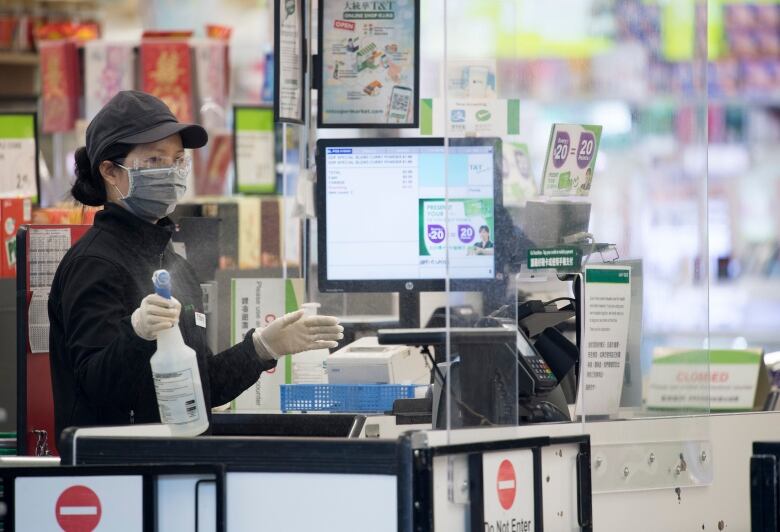Chris Hall: This expert is alarmed by Canada's failure to collect race-based pandemic data
'[Discrimination] is often about what you don't do,' says Dr. Kwame McKenzie


One of this country's leading experts on the social causes of disease argues Canada's failure to collect race-based data on COVID-19 infections amounts to discrimination by "neglect."
"Discrimination is not necessarily about what you do. It's often about what you don't do," Dr. Kwame McKenzie said in an interview airing Saturday on CBC Radio's The House.
McKenzie is a psychiatry professor at the University of Toronto and CEO of the Wellesley Institute, a think tank that studies urban health issues.
"It's not about people being actively discriminatory or racist. It's sometimes about just neglect," he said. "And the fact that we haven't collected this data seems neglectful, because everybody really knew we should be collecting these data but it was never at the top of anybody's list of things to do."

Toronto's low-income pandemic crisis
In Ontario, new cases of COVID-19 increasingly are concentrated in the Greater Toronto area. But it wasn't until this week that the city released a map showing which neighbourhoods were most affected. That map showed the highest concentrations in neighbourhoods with a higher percentage of low-income residents and high-rise residential buildings.
The Toronto suburb of Scarborough is one of the regions with a number of hotspots. It is also one of the most diverse and densely populated areas in the country.
Liberal MPP Mitzie Hunter represents the riding of Scarborough-Guildwood. In a separate interview on The House, Hunter said the lack of information about who is getting the virus now, and who is most in danger of getting sick, puts people in her community at greater risk.

She said many people in her community live in homes with their extended families, where it's impossible to self-isolate. Many work in places like long-term care homes, grocery stores and other essential industries where there is no option to work from home.
"One of the weaknesses in the Ontario Public Health Response is the lack of the collection of disaggregated data based on race and other demographic profiles that could help track the progress of this virus by individuals, where they work, where they live and income levels," she said.
"All of those factors that could help to save lives."

Remembering Leonard Rodriguez
Ontario Premier Doug Ford released expanded testing guidelines on Friday to help public health officials better understand what's happening in these COVID-19 hot spots. But it's not clear when and how this would be done.
Hamilton Centre New Democrat MP Matthew Green is another politician who believes the most marginalized workers are the ones coming down with COVID-19. In the Commons this week, he told the story of a personal support worker named Leonard Rodriguez who was buying masks with his own money because his employer wouldn't provide them.
"After he was denied personal protection from his workplace, he was sent home. He tested positive and when symptoms worsened, he went to the hospital," Green said. "A few hours later he was discharged from the hospital and died two days later.
"(His) story cannot be forgotten. We must begin to collect race-based data related to COVID-19."

McKenzie said data collected during the H1N1 outbreak in Ontario 2009 showed black Ontarians were 10 times more likely to be infected by that virus. But for some reason, nobody was collecting similar information when the COVID-19 pandemic broke out.
Both the United States and Britain are collecting that kind of data now.
"And so the alarm bells started ringing out when they could show in the U.S. that people who are African-American were twice as likely to get COVID-19 and about two to three times more likely to die from it," McKenzie said. "And we saw similar things in the U.K., where black and ethnic minorities are twice as likely to get COVID-19, much more likely to die."
The British data also found that most of the U.K.'s health care workers are black or belong to other visible minorities.
McKenzie said he believes a public inquiry needs to be called in this country.
"I would say that would be helpful. We're an evidence-based country and if we want to learn from things that go wrong, we need to reflect on why this has happened and what we need to to do in the future to stop it from happening again."
Watch: Toronto unveils its pandemic map

